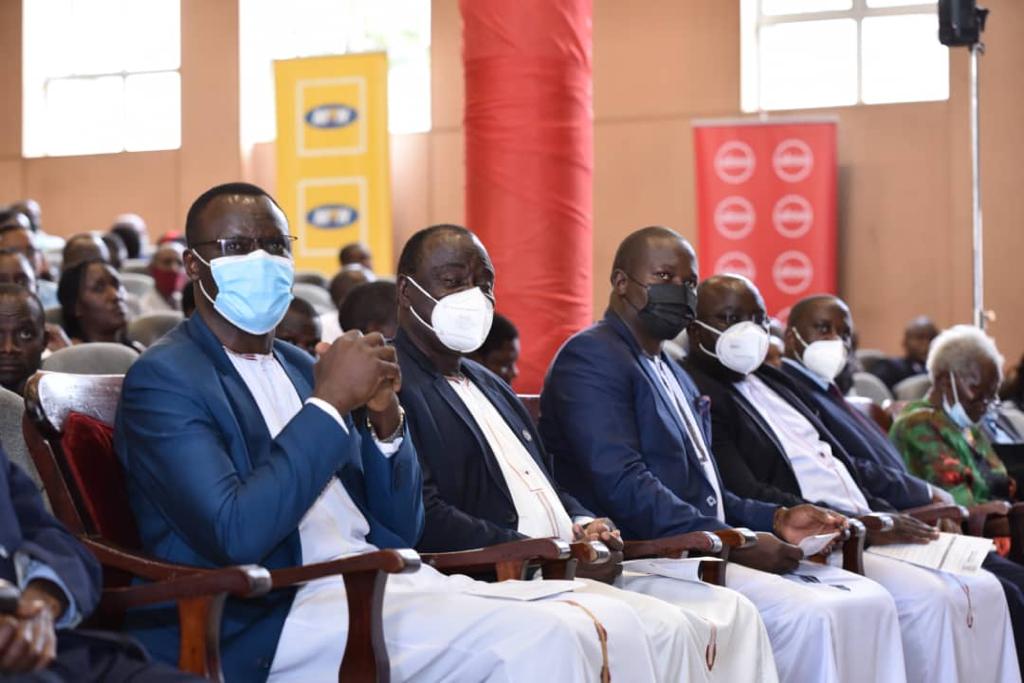Martin Luther Nsibirwa: A man whose fine qualities we should emulate
By Andrew Besi
“In Uganda, these “abnormal complexes” came to a head when in 1945, the Colonial government sought to establish a modern University at what they deemed a worthy site at Makerere Hill. This 300 acre site had many advantages over many other sites both within what is now Uganda and elsewhere.”
Uganda’s history would be lame if men like Martin Luther Nsibirwa, misunderstood by many a populist Buganda chief of his day, were not celebrated.
I first got to hear of this remarkable Muganda man when as a sixteen year old in 1997, after a decades long battle, the authorities at our premier university on the hill at Makerere, led by the chair of their council Dr. David B Matovu, renamed Northcote Hall to Nsibirwa Hall.
Martin Luther Nsibirwa reigned as the prime minister – katikiiro – of Buganda first from 1929 – 1941 and then again, for the briefest of moments in 1945 having replaced the largely forgotten Samuel Wamala.
Reader, this year, Makerere University celebrates its centennial anniversary. Indeed, like much of Africa, university education in Uganda has a history that can only be described as “challenging”! When the British successfully annexed our lands and declared us a Protectorate in 1894, they set about redefining our cultures and norms into something that would best suit their needs. Among these, was the idea to “modernise” us by turning us into proper ladies and gentlemen.
To achieve this transformation, the local schools in Buganda – Ebisakaate – were replaced by Church schools where the Christian Catechism, basic literacy and arithmetic were taught. This education ensured that the local Ugandan or African could be a dutiful servant to the Colonialists. Abdou Moumini summed this education as that which “corrupted the thinking and sensibilities of the African and filled him with abnormal complexes.”

In Uganda, these “abnormal complexes” came to a head when in 1945, the Colonial government sought to establish a modern University at what they deemed a worthy site at Makerere Hill. This 300 acre site had many advantages over many other sites both within what is now Uganda and elsewhere.
Like all of Africa, this land had its owners, many of whom believed that there was no need for East Africa’s first University to be built on their land. Frankly, due to the growing tide of discontent among many Baganda, many of these landlords did not see the need for University education however “complex” and ultimately beneficial to Uganda and to East Africa it might be.
Therefore, they towed the same Populist line as many of their chiefs and their former Katikiiro, Samuel Wamala.
Not Martin Luther Nsibirwa, himself a father of 26 youngsters many of whom he had sent to either Kings college Buddo and to Gayaza High School. He refused to bow to Populist sentiment and signed off on the 300 acres at Makerere. Thus begins the story of Makerere University as we know it today.
The price of his foresight and tenacity to serve his people and his country in the most noble of ways – death, outside St. Paul’s Cathedral in Namirembe by a gunshot inflicted by an ignoramus populist George William Senkatuka.
As his daughter, Mrs. Rhoda Kalema, herself a distinguished lady, and borrowing from German reformer Martin Luther, reminded us, “the ultimate measure of man is not where he stands in moments of comfort and convenience, but where he stands at times of challenge and controversy.”
Elsewhere, today morning, all of International Television and Radio was broadcasting from Red Square in Moscow. It was the annual Victory Day Parade. This year is of significance because of the ongoing war in Ukraine.
If truth be told in all its entirety, this war could have been avoided if Moscow’s legitimate concerns were never toyed with by Ukrainians,and the North Atlantic Treaty Organisation – NATO. The challenge it seems, stems from the rise of cynicism and populism among these democracies.
This dangerous cynicism and populism is not unique to these democracies alone. By many accounts, it has reigned in Ukraine since 2012.
It is also evident in Uganda in the way politicians with not much to offer insist on dragging Mmengo and the Kabaka into their often selfish agendas.
Politics is and should always be a call to serve the interests of all people. It is in our constitution. In our 10 points program. It drives our Jumuiya aspirations.
Perhaps, then, like Nsibirwa and Aeschylus before him, in today’s times, we should say “wrong must not win by technicalities.”
The writer is a citizen of Uganda.
Get Involved
Are you a Member of Staff, Student Body, Alumni, General Public, or Well-wisher? Find out how you can get involved here, or share your Makerere experience with us.
 Makerere
Makerere